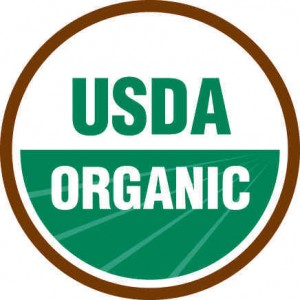14
Aug
Organic Advocates Applaud USDA Decision to Audit Organic Program
(Beyond Pesticides, August 14, 2009) Following advocacy by the National Organic Coalition and others, the U.S. Department of Agriculture (USDA) has announced that it will subject its National Organic Program (NOP) to a stringent audit and continued oversight by the National Institute of Standards and Technology (NIST). In a July 29, 2009 letter addressed to the National Organic Coalition, Deputy Secretary of Agriculture Kathleen Merrigan underscored the value of scrutinizing the NOP to strengthen the integrity of the program and the USDA organic seal.

The NOP is USDA’s regulatory body that develops, implements, and administers the USDA organic seal and national standards for organic agricultural products sold in the U.S. It accredits domestic and foreign certifying agents who inspect organic production and handling operations producing organic food sold in the U.S. as compliant with USDA organic standards.
NIST’s National Voluntary Conformity Assessment Systems Evaluation (NVCASE) program reviews accreditation programs such as the NOP to assess their ongoing conformity with international standards for management of accreditation program through onsite audit, evaluation of office system, and oversight of record keeping, enforcement, and corrective actions.
“Third-party recognition is important for many of USDA’s audit-based programs,” Ms. Merrigan said in her letter to the National Organic Coalition. “We understand the value of this step as we continue working to strengthen the integrity of the NOP and to build the organic community’s trust in the program.” She anticipates that the NIST review will begin October 1, 2009.
“We applaud USDA’s willingness to submit its organic program to the rigors of these international norms and believe this will pave the way for continued growth and success of the U.S. organic industry,” said Robynn Shrader, a National Organic Coalition founding member and CEO of the National Cooperative Grocers Association.
In June, the National Organic Coalition met with Ms. Merrigan to discuss the need for greater consistency in the implementation of NOP rules. The coalition proposed that the NOP apply to NIST at the U.S. Department of Commerce for recognition of its accreditation function and to make a commitment to strictly comply with NIST requirements.
“USDA’s organic seal is the best guarantee for people who want to eat healthy foods grown without the use of toxic pesticides, GMOs or artificial growth hormones such as rBGH,” said Liana Hoodes, National Organic Coalition policy coordinator. “We anticipate that the potential changes NOP will make to earn NIST recognition will result in greater consistency and integrity in USDA organic standards, greater fairness to organic farmers and handlers, and greater consumer confidence in the USDA organic label.”
In order for the NOP to be recognized by the NIST NVCASE program, National Organic Coalition anticipates NOP will be required to make significant modifications to its accreditation procedures.
“We think the USDA and the entire Obama Administration have sent a clear message that maintaining and improving the integrity of the organic industry is a national priority, and that the USDA will continue to build a trusting alliance with the broader organic community as the NOP grows and matures,” Ms. Hoodes added.
The National Organic Coalition is a non-governmental alliance of organizations working to provide a “Washington voice” for farmers, ranchers, environmentalists, consumers and progressive industry members involved in organic agriculture. Beyond Pesticides is a member of the National Organic Coalition and believes the integrity of the organic label is central to a national program.
Beyond Pesticides supports organic agriculture as effecting good land stewardship and a reduction in hazardous chemical exposures for workers on the farm. The pesticide reform movement, citing pesticide problems associated with chemical agriculture, from groundwater contamination and runoff to drift, views organic as the solution to a serious public health and environmental threat.
Organic agriculture embodies an ecological approach to farming that does not rely on or permit toxic pesticides, chemical fertilizers, genetically modified organisms, antibiotics, sewage sludge, or irradiation. Instead of using these harmful products and practices, organic agriculture utilizes techniques such as cover cropping, crop rotation, and composting to produce healthy soil, prevent pest and disease problems, and grow healthy food and fiber.
For more information of the many benefits of organic food, please visit Beyond Pesticides’ Organic Food program page.










